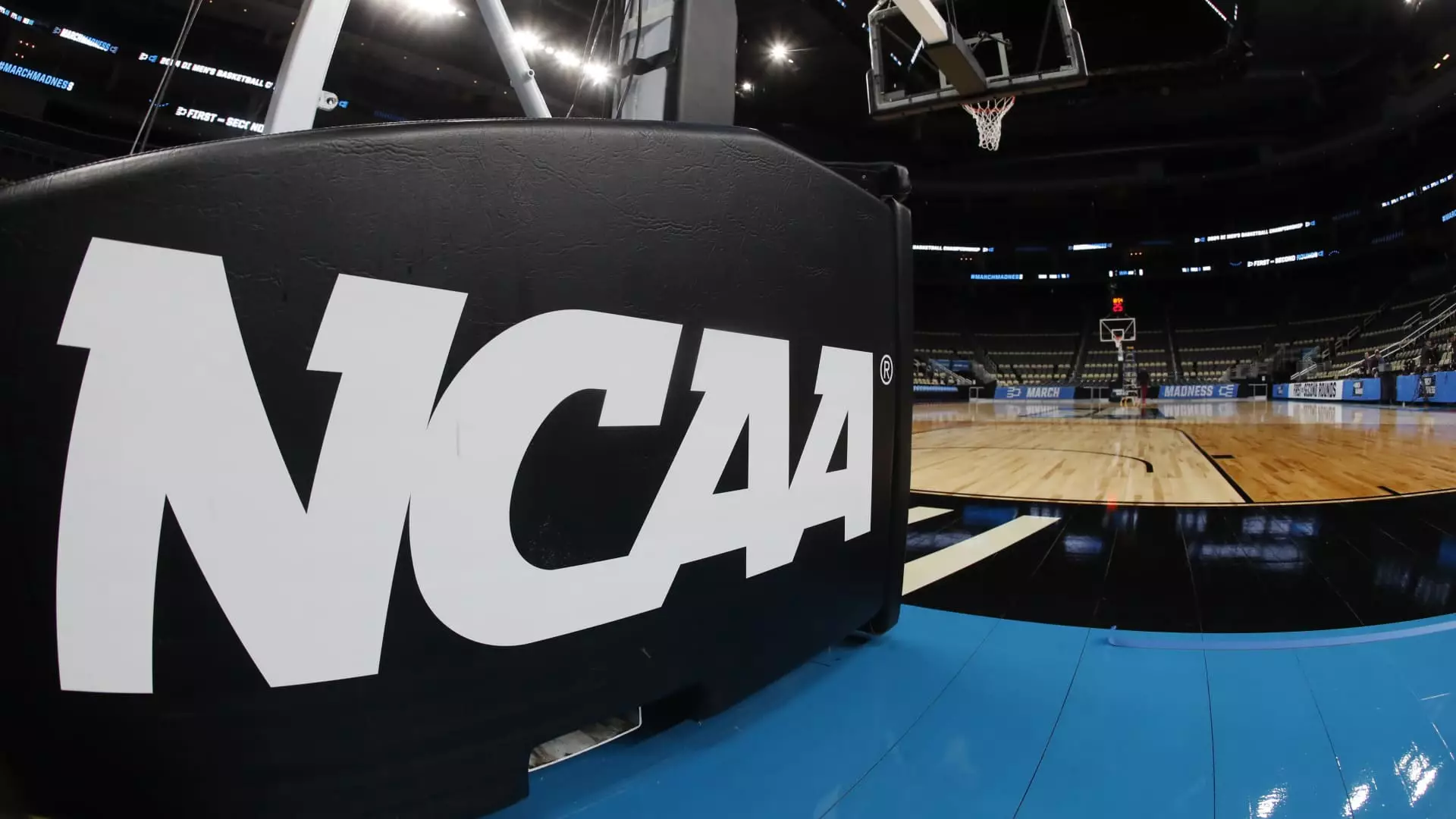In recent months, discussions surrounding the participation of transgender athletes in competitive sports have intensified, particularly in the context of policies enacted by major governing bodies. A notable change came from the National Collegiate Athletic Association (NCAA), which has drawn criticism and sparked debate with its updated transgender athlete policy. This new direction follows a politically charged backdrop, wherein federal directives have prompted significant alterations in how institutions approach gender identity in sports.
The NCAA’s recent policy dictates a clear segregation, prohibiting trans women from participating in women’s sports while allowing them practice privileges and medical benefits. This decision follows a directive from President Donald Trump to defund schools that permit such participation, signaling a broader political struggle over gender identity. Notably, this policy maintains that all students may compete on men’s teams, but those on testosterone must fulfill a medical exemption process, effectively placing a myriad of stipulations around participation based on assigned sex at birth.
This stringent framing of eligibility not only affects trans athletes but also those assigned female at birth who engage in hormone therapy. In essence, it consolidates an understanding of gender into a binary framework, dismissing the complexity that intersex and transgender identities embody. As such, the NCAA’s policy no longer aligns with its previous approach, which had deferred to the governing bodies of various sports to establish eligibility standards, suggesting a significant shift towards a more restrictive stance.
The evolution of this policy cannot be divorced from the political climate it resides within. President Trump’s executive orders have significantly influenced policies surrounding gender and sports, establishing a narrative that prioritizes biological determinism over individual identity. The insistence on a binary understanding of gender reflects a broader societal trend that seeks to invalidate the existence of transgender and nonbinary individuals. Trump’s administration has made it clear that it seeks to minimize the recognition of diverse gender identities in both policy and public discourse.
This context is essential, as it reveals that the NCAA’s decision may not solely be about sports but rather a reflection of evolving cultural attitudes toward gender identity. By adopting stricter guidelines, the NCAA aligns itself more closely with a conservative political narrative that seeks to unify standards in the face of what some see as rapidly changing norms regarding gender.
The new NCAA policy has drawn stark rebuke from advocacy organizations and individual activists. Notably, Chris Mosier, a recognized advocate for transgender rights, articulated concerns that the NCAA’s focus on assigned sex at birth is fundamentally reductive. This perspective underscores the failures of the policy to accommodate the nuanced realities of gender expression, often reducing complex identities to simple binary categories that do not reflect the lived experiences of many athletes.
GLAAD, a prominent LGBTQ+ advocacy group, condemned the NCAA’s policy as “deeply disturbing,” arguing that the decision appears to be a reaction to political pressure rather than a reflection of well-founded medical and scientific understanding. Their statement emphasizes the necessity for policies that prioritize safety and inclusivity for all student-athletes rather than yielding to external pressures that lack a solid grounding in expertise or ethical considerations.
As we reflect on the implications of these policy changes, it becomes increasingly clear that a deeper dialogue surrounding gender identity in sports is essential. The NCAA’s recent actions represent more than just regulatory changes—they are indicative of ongoing tensions in society regarding acceptance and understanding of transgender individuals. The focus should not merely be on exclusion but rather on fostering an environment where all athletes can compete fairly and safely.
In light of this urgency, the NCAA, educational institutions, and policymakers must engage in substantive discussions that integrate the voices and experiences of transgender and nonbinary individuals. As the landscape of sports continues to evolve, defining eligibility standards must balance the ideals of inclusivity with competitive fairness. This journey towards equitable sports practices must be grounded in scientific, social, and human rights considerations.
The recent changes to the NCAA’s policies on transgender athletes present significant challenges and complexities in the realm of competitive sports. While the framing of these regulations arises amidst socio-political tensions, the broader implications for inclusivity and identity recognition cannot be overstated. Moving forward, it is imperative that stakeholders in all areas of the athletic community push for dialogue rooted in empathy and understanding, thereby ensuring that the world of sports truly reflects the diversity of its participants.


Leave a Reply